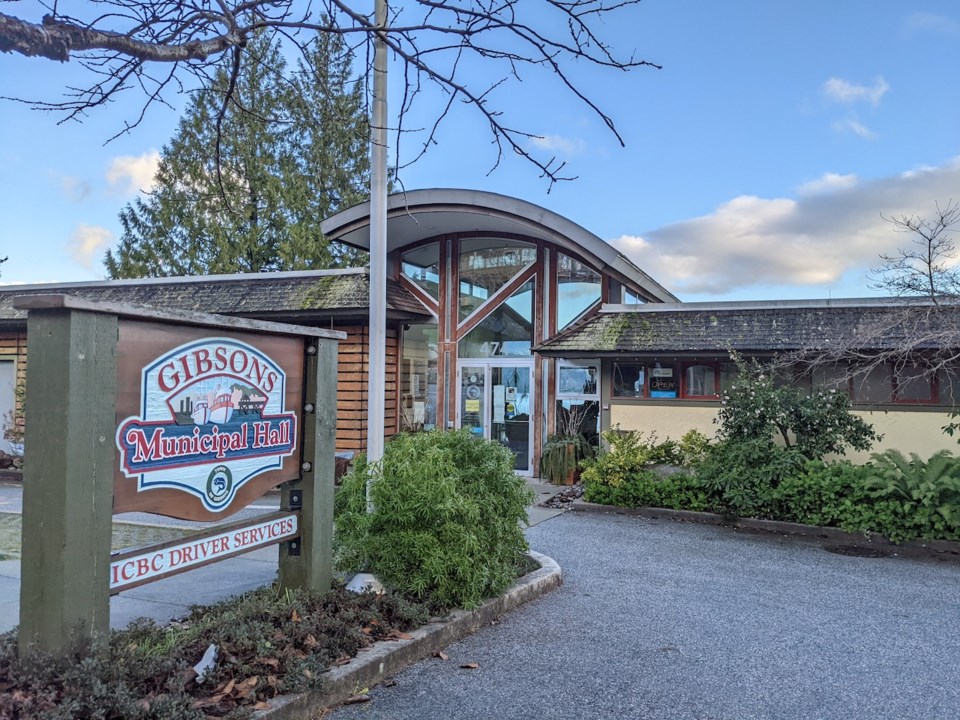Jan. 21, Gibsons council put a notice on title for a Headlands Way property for an accessory building that “may be unsafe, which was renovated without a valid building permit or inspections and is being occupied as an unauthorized use.”
The notice is to alert anyone – often a buyer –searching for a property title that the property may breach bylaw or regulation, said a staff report.
The accessory building was renovated to include sleeping and cooking facilities without the required permits and inspections and therefore may not meet Building Code, said the report. The building has been used as a short-term rental despite warnings from the town to decommission this use.
“The Building and Bylaw departments have had ongoing correspondence with the owners regarding the unauthorized use of the building to try and find a compliant solution. However, no progress has been made,” said the report, which details correspondence between the town and current homeowners on the matter as far back as May 2019.
To bring the building into compliance with town bylaws would require form and character development permit, development variance permit for the setback, possible parking variance and a building permit. All of this would include planning, building and infrastructure fees to be paid to the town as well as notice to BC Assessment of improvements. Or the homeowners could decommission the site as a dwelling.
One of the homeowners attended the meeting and said when they bought the property in 2017, they were “not given any notice” that the building wasn’t compliant, adding that there was a tenant in the building when they bought it. “It was a complete surprise to us that it was non-compliant,” he said.
“What we've been presented with to make it compliant, if it's possible, just seems quite unreasonable,” he said, pointing to the thousands of dollars in surveying, engineering and infrastructure required.
The building came to the town’s attention most recently as it’s being used as a short-term rental, a use the town monitors so it can request business licences. But they cannot issue business licences to buildings that don’t meet the code.
Council approved the notice on title unanimously.
Waste contract
Gibsons entered into a new three-year curbside waste collection contract with Salish Soils Inc. (which subcontracts to AJM Disposal Ltd.) with options for two two-year renewals.
Starting in 2025 with a base $421,000 (up from a base $407,000 in 2024), the estimated annual increase is 3.4 per cent per year for five years. Fuel surcharges will be billed on top of that.
Salish Soils, which also holds the Sunshine Coast Regional District's waste collection contract, submitted the only qualified proposal.
Though the accompanying staff report notes interest from Recycle BC in starting up curbside recycling, and the contract allows for that to be negotiated in, the idea wasn’t popular among council, during discussion Feb. 4.
“One reason why Gibsons has been traditionally opposed to what Recycle BC offers is, what Recycle BC offers is lousy,” said Mayor Silas White. “They don't pick up all the items that we need them to pick up. So people who've been conditioned to throwing out glass and other items need to go to the depot anyway. So what's the point?”
Requesting library funding
Earlier this month, the mayor sent a letter to provincial Minister of Housing and Municipal Affairs Ravi Kahlon advocating for the province to increase libraries’ core funding to $30 million in line with requests from Union of BC Municipalities and BC Public Library Partners, as well as recommendations from a provincial committee.
“Public libraries provide essential services that contribute to economic development, digital access, emergency response and community well-being—especially valuable in times of economic uncertainty. In 2024, our library was used more than ever,” wrote White. “Yet since a 25% provincial funding cut in 2009, libraries have faced rising costs and population growth without corresponding provincial funding increases.”
White goes on to note that despite the financial pressures on municipalities, they continue to fund libraries as they’re important to communities. He asked that the temporary provincial enhancement grant set to run out at the end of the year be transformed into “stable long-term investment."



